Search result

Google Chrome Beta for Android has just been update to v41.0.2272.34 with some critical bug fixes and stability improvements along with some New features added in the "flags" section
One of the New features on Chrome Beta v41 is the "pull to refresh" feature, which is available to (almost) all web pages. It's now easier to refresh any page, just like you do on any App, just pull and release to refresh the page. Besides, If your internet connection (WiFi/3G) got disconnected, Chrome Beta will auto-reload the webpage when it detects that your connection is back online.
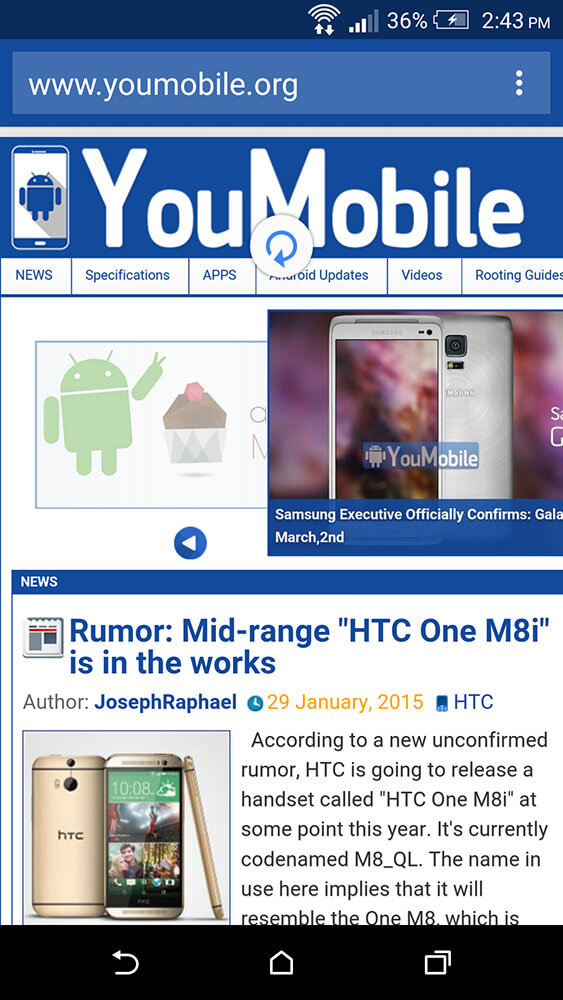
The other change we're seeing is in the settings UI, which is more material in v41 on KitKat devices. Finally, there's a new flag in Chrome Beta to scan credit cards to fill forms faster, but it doesn't appear to do anything when enabled right now.
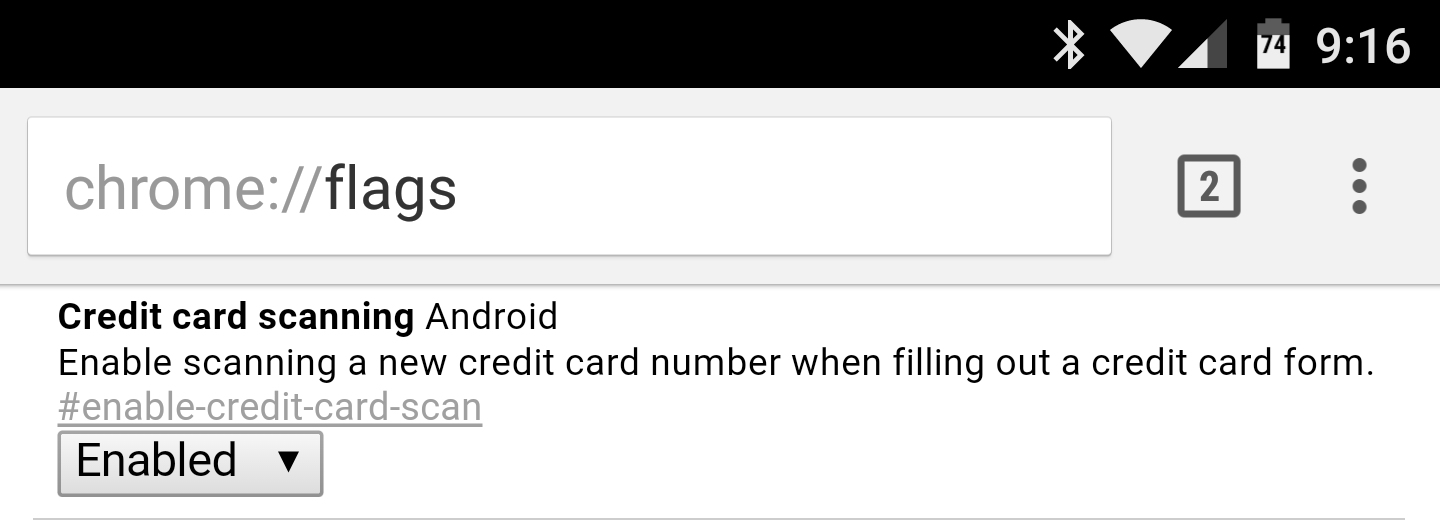
You can get the Chrome Beta v41 on your Android device right now by Downloading the APK below until the update hits the Google Play Store. The APK below is Official and has not been tempered with by any way.


Outsource web development in Ukraine daily becomes more popular among foreign companies. Local teams dedicated to their work and give excellent results. At the same time, cost custom tech developments are significantly lower than in Western Europe. Hire software developers in Ukraine customers receive practical projects implemented by modern tools.
Mangosoft
One of the best countries to find developers in Ukraine. Experienced programmers in creating web projects are the company Mangosoft. The versatile qualifications of specialists allow you to work on:
- Large scalable databases (MySQL PostgreSQL, MongoDB, and others).
- AI & ML.
- Enterprise Resource Planning (ERP).
- Internet of Things (IoT).
- Blockchain
- DevOps.
In addition to creating new projects, the company integrates existing technologies into new ones. Customers can order separately or in a sophisticated quality testing, reengineering. Successful projects include FinTech, logistics, media, travel, and real estate.
In web development, a company can offer sites, APIs, web applications, and individual web functions. Using Agile technology allows you to create high-performance resources. The speed of launching pages does not depend on the amount of information. The team performs coding on the client and server-side, cross-browser layout, and product testing. The company's employees specialize in Python, PHP, Java, Ruby on Rails for back-end development, and HTML, CSS, and JavaScript for front-end.
Customers can also turn to SEO optimization and other e-commerce features. It is possible to integrate CMS into a corporate network quickly. In an existing system, you can implement additional functions. The company will provide excellent solutions for creating payment gateways or remote control systems.
Cleveroad
The brand specializes in creating mobile and web applications for business. Projects are launched from scratch, developing their marketing strategies. Active user engagement ensures the successful development of the client business.
The main goal is the smooth operation of the final product in a massive flow of visitors. Programmers also emphasize the safety and reliability of the system. At the same time, they try to create an interface that is easy and intuitive. Designers strive to place even a large number of functions in such a way that navigation remains clear to the student.
The work always uses the principles of UI / UX. Cross-browser and cross-platform solutions can be implemented. Customers can also apply for adding new features to an existing project.
Inoxoft
Inoxoft specializes in creating web solutions for business. The brand philosophy is a clear code. This approach provides high resource performance in a massive flow of users. Also, experts create safe sites. Full functionality and a simple interface allow you to solve user problems effectively.
If a customer needs a unique design, then Inoxoft is the right choice. The creative team will create a project from scratch or rebrand. Creating layouts begins after thorough marketing research and study of the client's business.
Among the cases of the company, there are works for:
- Health facilities.
- Logistics.
- Financial sphere.
- Educational projects.
The staff has programmers with knowledge of .Net, Python, Node.JS, AWS, Azure.
Conclusions
Hiring developers from Ukraine Western companies receive significant budget savings. In this case, the quality remains at the highest level. Unlike other countries of Eastern Europe, there are no tax difficulties. The convenient time zone is suitable for collaboration remote work. Usually, companies have a lot of specialized specialists. This allows you to take into account the needs of each customer. This is also an occasion to hire a web development team in Ukraine rather than freelancers. If you do not know how to implement your project, seek free advice. For example, the Mangosoft team offers this service to all potential customers.
 |
 |
|
this article is not available |
||
 |
 |
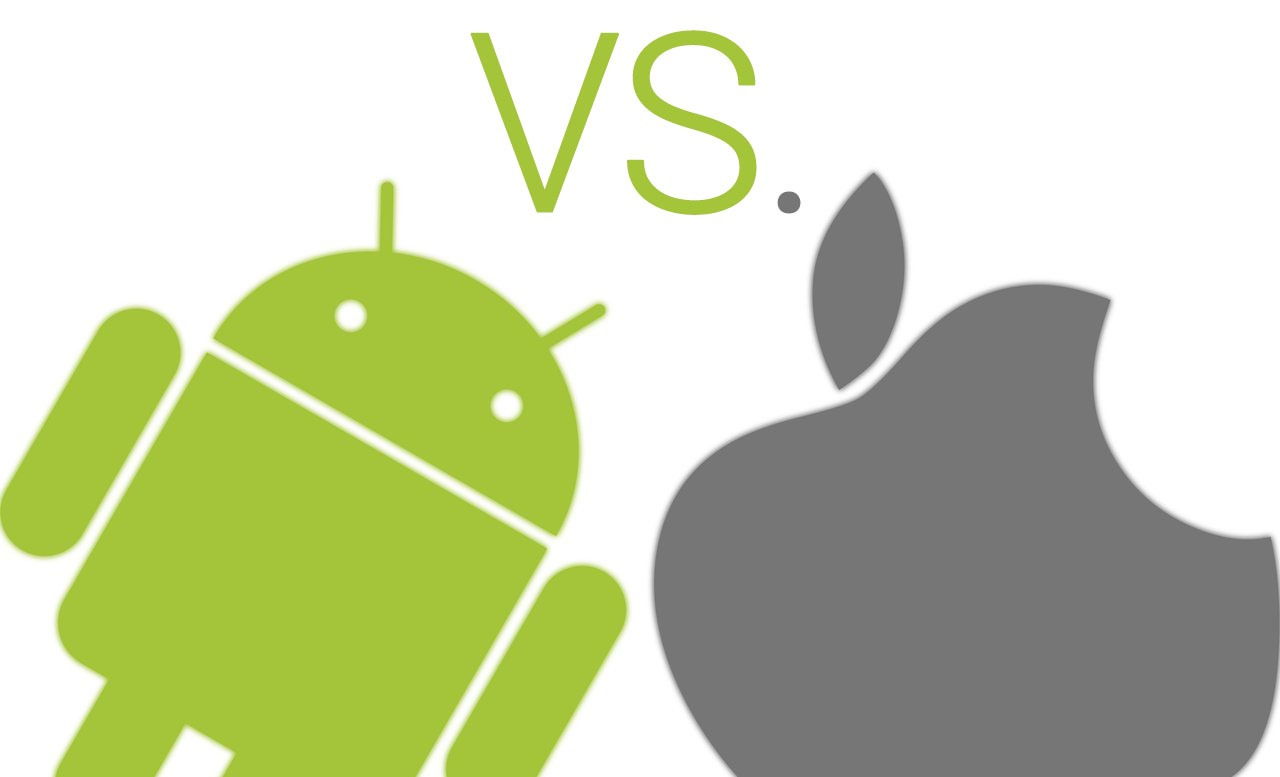
According to the latest month web traffic report by NetMarketShare, Android has unseated iOS sometime this July. Google's Android platform accounted for 44.62% of total Mobile Web traffic, whereas iOS trailed a little behind with 44.19%. Apparently, this is the first time Android has taken the lead in this department.
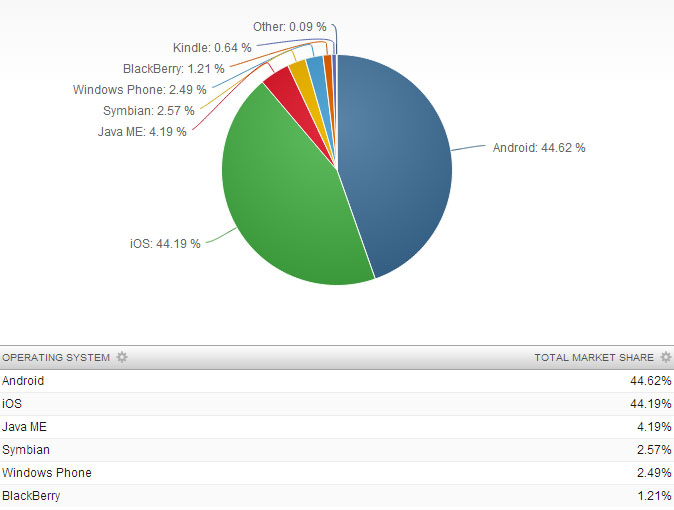
While some may argue that the lead is negligible, it appears that Android's dominant position on the market is finally beginning to pay off for Google. The latest official data from one of the most trustworthy sources, Strategy Analytics, revealed that Android accounted for 84.6% of the smartphone market in Q2 of the current year. Broken down to OS versions, Android 4.1 Jelly Bean contributed for 10.03% of all mobile traffic, Android 4.4 KitKat for 9.28%, and Android 4.2 for 8.77%. Meanwhile, more than half of iOS's result is formed by users, who accessed the world wide web from their iPad tablets.
Two of the other relatively major operating systems, Windows Phone and BlackBerry OS, grasped 2.49% and 1.21% of said market, respectively. Java ME and Symbian, however, stood between them and the leaders, Android and iOS.
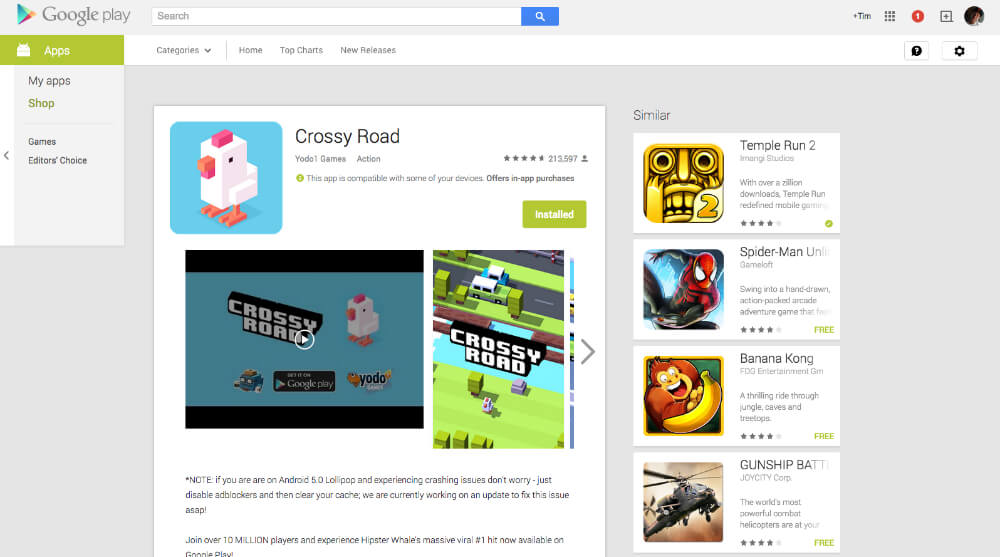
Google's updated a lot of Android apps recently, so why not Web-based Play Store. The Google Play Store Web version is receiving a slight redesign. The roll-out seems to be gradual, but more and more people are reporting seeing the new Play Store on the Web.
While the changes are not over the top, it reminds me quite a lot of the old YouTube look. Instead of related apps being placed all the way at the bottom of the webpage, they have been moved to the right of the screen, allowing for quicker exploration throughout the store's offerings.
Other than the updated look for listing pages, all navigation appears to be untouched. And while it does not scream Material Design, it feels rather smooth and responsive.

Source: Pixabay
Ever since Apple launched 500 applications onto the App Store in July 2008, dramatically expanding the potential capabilities of their pricey initial smartphone effort, apps have become a part of the public consciousness. Today, "there's an app for that" has moved beyond hyperbole with more than 7 million apps available across the five major smartphone platforms, as of March 2017.
Quite simply, apps have changed the way many of us access services and games, becoming a fundamental part of our daily lives.
But with the 10-year anniversary of the App Store just around the corner, apps are actually suffering a fightback unlike any which they've ever seen before, and it's coming from an unlikely source - the technology they promised to replace, web browsers.
To understand the battle between apps and web browsers, it's vital to recognise exactly where the internet was 10 years ago. Websites had grown up in an era where mouse and keyboard inputs where commonplace and powerful computers were able to display graphics and Flash heavy websites with relative ease. With the launch of the iPhone though, which didn't support flash and relied on touch input and a weak processor, these websites were no longer fit for operation.
While many websites quickly launched "mobile" versions of their pages, they were often lacking in core capabilities and were, frankly, a little unpleasant to use. As such, apps became immensely popular thanks to their streamlined, specialist design. However, 10 years on, things have changed. New technologies on the browser side have improved loading times, improved game performance and more - in addition to designers getting to grips with the navigation requirements of smartphones and tablets.
It's meant that we're now in a situation where both apps and web pages offer a superb experience for consumers, which is obviously only a good thing, but with both vying for the attention of businesses, developers and consumers, it's clear that there can only be one winner in the long run. So, which is it to be? Let's take a look at the case for each.
Web pages

Source: Pixabay
Web browsers have been around for as long as the internet and, over the decades, they've grown into incredibly advanced pieces of technology - ones which have learned from the lessons laid down by smartphone apps.
With the launch of HTML5 in October 2014, browsers grew infinitely more capable, with the technology promoting high-resolution, low-requirement graphics which enable everything from superior YouTube performance to the popular slot game Gonzo's Quest running well on both mobile and desktop. The latter, a popular online slot game by developer NetEnt, is available both for mobile browsers and desktop browsers at online casinos such as Betsafe. HTML5 has meant that more than ever, the performance difference between web and app have diminished.
Web pages also have the advantage of being accessible regardless of the space you have on your device, making them available to almost anyone.
Apps

Source: Pixabay
Apps aren't going anywhere though - at least for the time being. With many operations existing entirely as apps, rather than launching websites, they're truly entrenched. Apps also benefit from being specially tailored to the devices they're on, often making use of specific hardware features which websites can't, owing to their need for universal support.
A mobile app can also function offline in many cases, although this is mitigated by the fact that mobile internet and free WiFi have effectively ensured that we're rarely without accessible internet.
Which will win?
With Google working to bring mobile apps to the web through their Android Instant Apps program which allows users to visit websites to launch apps instantly without installation, it's clear that the distinction between the apps and the web is disappearing.
Ultimately though, with a future which features both still ahead of us, it's too early to tell which platform will win out. A free and open internet will always foster innovation and its low barriers to entry mean that it's unlikely to ever be replaced by apps. However, it's also the case that mobile apps do benefit significantly from their tight hardware integration and dedicated mobile design ethos.
Only time will tell, but we're excited to be along for the ride.

RAM amounts and CPU space sizes available on a hosting server are among the most important things to consider when choosing the right web hosting service for a website. As a website owner, you have to strike a good balance between your budget and the RAM and CPU size that you choose. Ultimately, you need a hosting plan that meets the needs of your website. But you must first understand these needs before starting your search for the best hosting service.
By the end of this short read you will have understood of how to determine the RAM and CPU that your site needs.
What is server RAM?
Random Access Memory (RAM) of a hosting server is basically the RAM of the hosting computer. This computer is different from a normal computer in the sense that it has resources dedicated to hosting and availing websites on the internet. The computer's RAM temporarily stores data needed to run an application or program and makes the data available on demand.
More or Less RAM?

From the basic responsibility of RAM, it's right to deduce that more RAM means uninterrupted availability of data and smooth running of programs and applications. A server with more RAM can support more apps or more web activity compared to a server with less RAM.
Having more than enough RAM at any given time is better than having less than needed amount of RAM. For instance, during times of peak traffic, your site needs more memory as many users are sending requests for data to the site. Should the site not have the amount of RAM that can put up with the high traffic, it may become slow or even stall completely, which would cause visitors to leave the site.
Determining How Much RAM Your Site Requires
Web hosting companies look at memory usage in different ways. You may find that a hosting plan has a set limit on the memory usage, for example 2GB. Others indicate that a single user cannot exceed a certain percentage of the server's total memory. When comparing different hosting solutions make sure you understand each hosting company's approach to RAM size.
Here are a few pointers that will help you determine the amount of RAM your site needs:
● If your site experiences heavy traffic, it needs more RAM to ensure that it keeps up with visitors' requests
● The content management system you are using - some CMSs like Drupal, Joomla, and WordPress generally require more RAM
● Static sites require less RAM in comparison to dynamic sites
● The server's operating system has an influence on the amount of RAM needed
● If a site uses caching, it can use less RAM than a site that doesn't use caching
What is CPU in Relation to Web Hosting?
Server CPU (Central Processing Unit) refers to the CPU(s) of the hosting computer(s). Normally, web hosting servers will have multiple CPUs depending on the nature and size of websites it hosts. A CPU stores and processes data, and its capacity to do so determines the efficiency of the server. Larger CPUs are able to store more information as well as process it faster than smaller CPUs. As such, the amount of space available in the server's CPU significantly influences the performance of your site.
Site traffic is just as important to choosing the right amount of CPU space for your site as it is to choosing the amount of RAM. CPUs with little space can get overloaded by many simultaneous requests, causing the site to suffer performance problems. If you have a large corporate or eCommerce site that receives heavy traffic, choose a hosting environment with a large CPU. Dedicated hosting and virtual private servers (VPS) are preferred to shared hosting when large CPU sizes are needed.
Every site owner wants the best hosting service; a service caters for the website's current needs as well as expected future needs. It's of paramount importance that you consider the scalability prospects of your site as you choose the right RAM and CPU sizes for your site. Leave enough room for future growth and expansion so that you will not need to contract another hosting service when your website becomes more popular and hence busier.
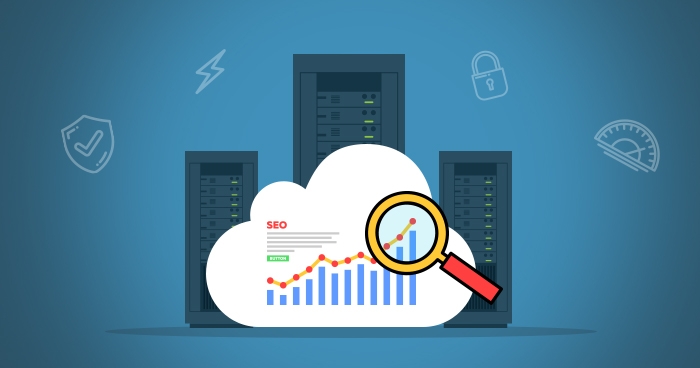
You do not necessarily have to be a programmer to understand that the right place for storing all the files on your website is an extremely important thing. It is especially true when you are running a commercial project. Therefore, trying to save a few dollars per month is not the best approach here. Selecting a quality website hosting is a guarantee of your website stable operation, the absence of downtimes, and safety of your sensitive project data. Is it what you aim for? Then keep reading to have all the secrets of choosing the right website hosting revealed.
What Does Picking a Right Hosting Mean to Your Business?
Being a place on a remote computer that stores all the files of your site, hosting is of crucial importance for your business. It can make your project either succeed or fail one day. So there is a difficult task for a product owner or a webmaster to find the best web hosting in terms of the price / quality it offers. Taking into account the number of companies providing web hosting services, picking the right one can be a difficult-to-accomplish mission. In fact, even without being a technical specialist, it is possible to make the right choice if you know some basic criteria to pay attention to.
➔ Available resources - The main point you should be interested in is the amount of RAM, processor power, and disk space offered. For the effective work of most modern content management systems, 128 MB of RAM and 2-3 gigabytes of disk space are enough. However, you should always remember - the more RAM and disc space you have at your disposal, the better. As another piece of advice, it is better to give preference to a web hosting with SSD drives rather than hard drives since the website download speed will be slower in the first case.
➔ Uptime statistics - This is an indicator identifies the server's uninterrupted operation time. And the higher this figure is, the better it is for you. For example, when uptime is 99.7%, idle time per month is less than an hour. Accordingly, a figure of 99.7% means that almost 8 hours a month, the site will be inaccessible to visitors.
➔ Technical support - It is better to select companies that you can reach out to around the clock. They should have several channels of communication, with live chat and toll-free phone calls being among them.
Shared, VPS or Dedicated?
There are three different types of web hosting solutions - each having its particular set of features. Of course, when seeking a hosting for your online project, the web hosting type is the first thing you are to check.
➔ Shared is the most common type of web hosting. It can be compared to a one-bedroom apartment where you live with friends. You pay for housing together, so it's cheap. Despite being quite a profitable option, an "accommodation" with other sites imposes some restrictions that refers to page load speed and number of visitors that can be served simultaneously. In addition, if you block one of the sites that you share hosting with, your online resource may also appear in the blacklist. Shared hostings are suitable for small projects with low attendance and small budgets.
➔ VPS is a type of web hosting where a user gets full control over the virtual server. Multiple VPSs are placed on the same physical machine, so you have to share resources with other users, but you are free in the space allocated to you. It's like having your own house in the village: there is just one settlement, but each house has a separate owner, which sets its own orders within its limits. VPS is used to host large projects with high traffic.
➔ Dedicated - when it comes to a dedicated server, the user is provided with a separate physical machine that he can control in full. The dedicated hosting type is a perfect match for heavily loaded website, the one with several tens of thousands of visitors per day.
Expert Verdict!
Choosing a web hosting for your online project is a difficult but possible-to-achieve mission. Take into account the above technical criteria and purchase a hosting that meets the particular goal you pursue. If you do not want to waste your time doing research yourself, address this task to real professionals of this business. Eweb will do all the difficult work for you - test out all the hosting solutions on the market and provide you with a valuable review of every service.
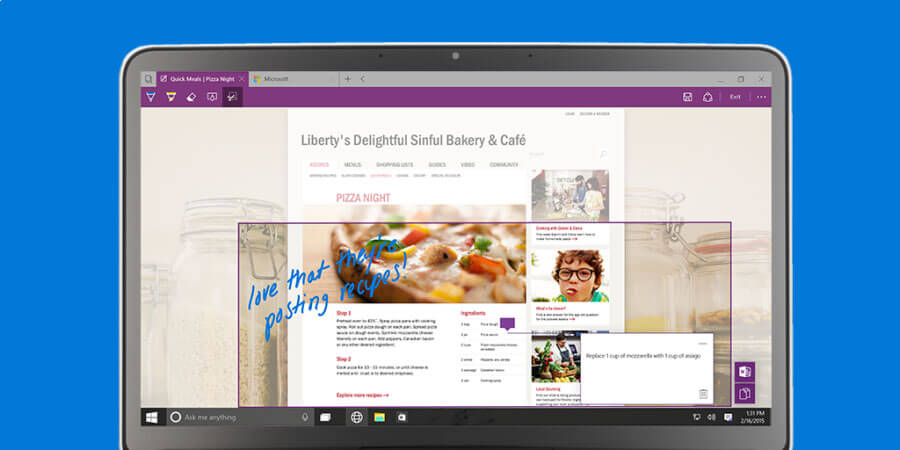
Surprisingly, The upcoming most-needed Project Spartan web browser by Microsoft will support Extensions, in the same way as Google Chrome. The development team behind Project Spartan has confirmed the news on Twitter.
Extensions will arrive to Project Spartan via a future update. Details on the nifty feature are yet to be revealed. Reportedly, Microsoft is reviewing options that will allow developers of Chrome extensions to port their creations to Spartan with no hassles. Such a move will help Microsoft quickly build a significant catalogue of extensions for its newly announced offspring.

Project Spartan is arguably as significant an announcement as Windows 10 itself. The browser will be part of the latest OS by Microsoft for both mobile and desktop devices.
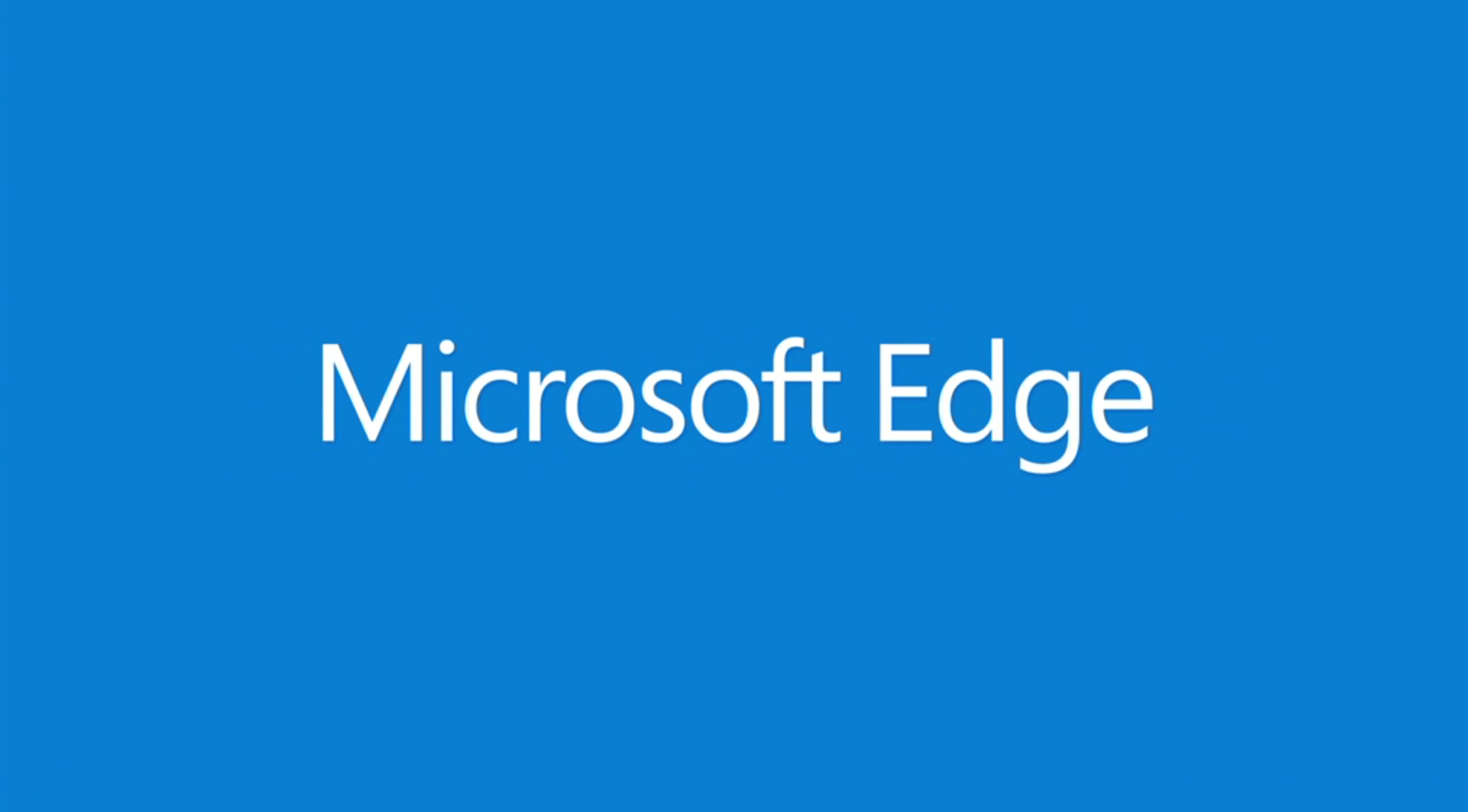
Today, during Windows Build conference, Microsoft has finally announced what it's going to call its new Web browser for Windows 10. This has been known so far as Project Spartan, but its official name will be "Microsoft Edge".
Edge will be the default browser in Windows 10, although a version of Internet Explorer will also be in there just for compatibility's sake.
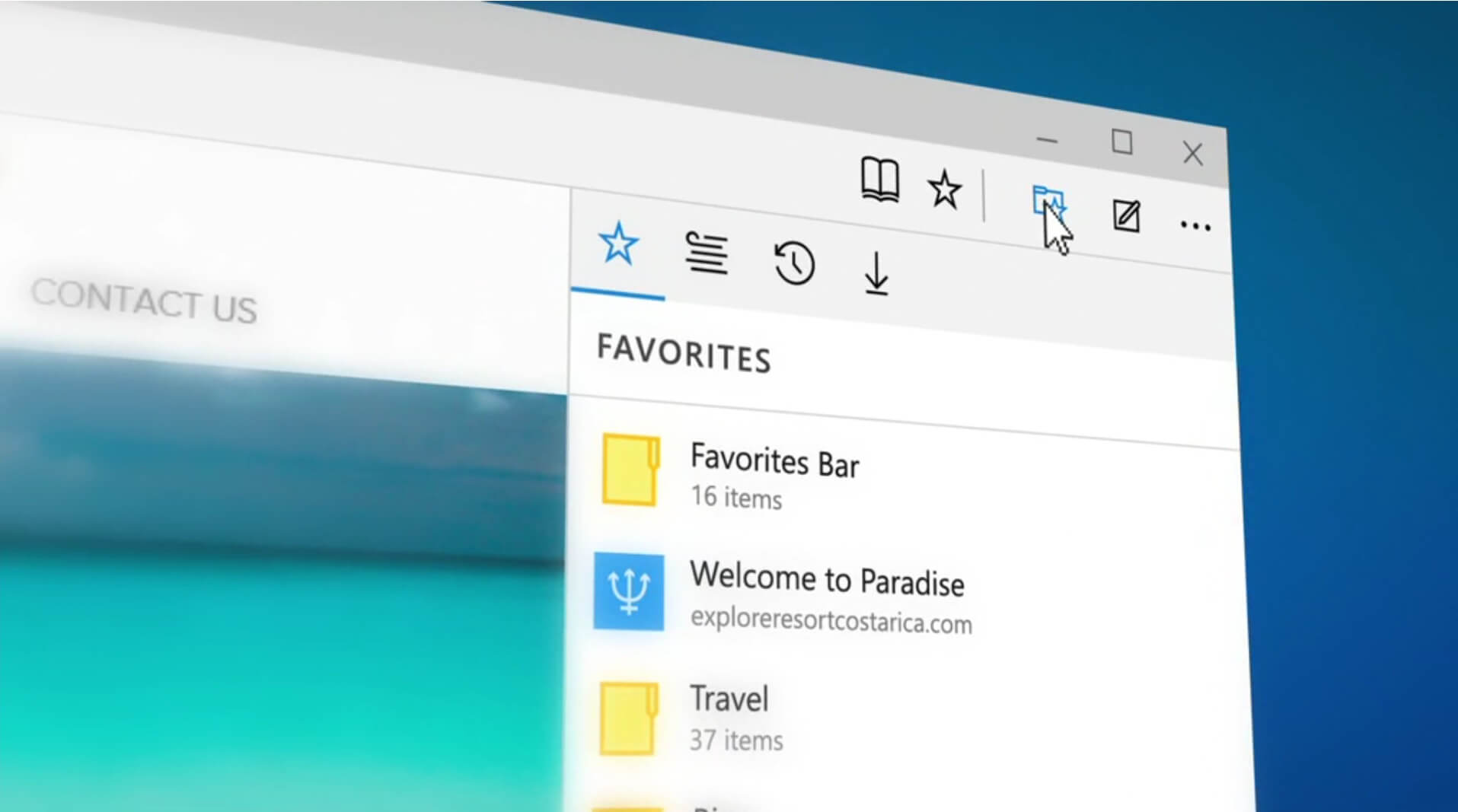
Microsoft Edge will work with Cortana in Windows 10, so for example you'll be able to say stuff like "Hey Cortana, open youmobile.org", and that will happen for you in Edge. The New Tab page has been redesigned and it uses Cortana too, showing you favorites, a search bar, featured apps, news stories relevant to you, weather info, stocks, and sports.
Extensions built for Google Chrome will be able to work in Edge with very minor modifications, it turns out. The same should be true for Firefox extensions too.

The advent of mobile gambling has propelled the industry forward, and it is still regarded as one of its most important milestones. Playing casino games on a smartphone is easier than ever, as the latest devices are powerful enough to run even the most demanding slots. Modern casinos, such as the one reviewed at https://holymolycasinos.com/casino/gala-casino-review feature, almost exclusively mobile-friendly games. The only significant decision to be made is whether to play in a browser or download a dedicated app. As the mobile gaming revolution goes to the next step, Instant and Progressive Web Apps come into play.
The Mobile Gambling Story so Far
Convenience is one of the main strengths of online casinos and the quality they are keen to build on. This explains why instant play casinos using Flash and HTML 5 technology are so popular among recreational punters. They are granted access to a wide selection of games that includes all popular genres, such as slots, table games, video pokers, and instant win games. Live dealer games are also supplied, and there are no compatibility issues since instant play games can be enjoyed on all operating systems.
The advantage of choosing an instant play casino is that one doesn't have to download third-party software on their device of choice. There are few shortcomings, but the fact that it takes longer to find the game and the need to log in each time can be a bit frustrating. When playing casino games on their smartphones and tablets, they can run slightly slower in instant play mode.
A mobile casino app grants players one-tap access to an entire portfolio of games that run smoothly, even on older smartphones. There's no need to login, and navigation is a breeze, while players can also tap into the generous offers that casinos have prepared for mobile gamblers. On the flip side, not all the games available in instant play format can be enjoyed through the app, so players might have to sacrifice variety. Then there's also the issue of downloading an app that takes space and requires more processing power.
Gear Up for the Arrival of Instant Apps
Android Instant Apps are supposed to represent the next important milestone in the mobile gambling revolution. These modern apps have all the advantages of their classic counterparts, without requiring players to complete the installation process. The name is self-explanatory, and these instant apps grant immediate access to the games while delivering the same great graphics and immersive experience.
Smartphone owners whose devices are running on Android 6.0 or above can take advantage of the instant apps. By accessing the phone's settings and enabling the feature, when supported, players can launch instant apps and take mobile gaming to the next level. At the time of writing, only a fraction of the apps available are instant, but those who are available in this format will have the word "Instant" written next to them. They load up quickly and can be used in the same way as any classic Android application.
Embrace the Change of Progressive Web Apps
Software developers know that even if you are on the right track, you'll get run over if you sit there. Progressive web apps are the natural evolutionary link, building on the current web capabilities of mobile apps to deliver a better experience. They empower users to take advantage of native and web app features, share them via a link, and they are fully integrated with the operating systems. The result is a seamless user experience while being reliable and immune to volatile network conditions. Last, but definitely not least, Progressive Web Apps allow users to install a native application that also works offline.

In today's digital age, mobile gaming has become incredibly popular, providing millions of users with a convenient and immersive gaming experience right at their fingertips. However, with convenience comes the potential for cybersecurity risks. As a mobile gamer, it's crucial to adopt secure web practices to protect yourself as well as your devices from potential cyber threats and ensure a safe and enjoyable gaming environment.
In this article, you will find 6 foolproof measures to ensure the utmost security when gaming on mobile.
1. Stay Updated
One of the most critical steps in ensuring security while gaming on your mobile device is keeping your operating system and gaming apps updated.
Developers often release security patches and updates to address vulnerabilities and enhance overall security. Regularly updating your mobile device and gaming applications will help safeguard against potential attacks and ensure you have the latest security features.
2. Strong Authentication
Implementing strong authentication measures is another crucial aspect of secure mobile web practices in gaming.
Implementing strong authentication is crucial in guaranteeing data security. It is imperative to enable Two-Factor Authentication (2FA) or Multifactor Authentication (MFA) whenever feasible, as it necessitates an extra verification procedure beyond passwords ensuring that only you can access it. This additional safeguard greatly mitigates the threat of unauthorized entry into your gaming accounts.
3. Secure Payment Options
Another necessary mobile practice when browsing and visiting gaming websites or downloading mobile gaming apps is to check for the app or the site’s payment options.
In the realm of mobile gaming, in-app purchases are a predominant feature, allowing players to acquire virtual goods and upgrades. Since these transactions may involve sharing credit card details, it is imperative to provide secure payment options. A gaming platform that ensures secure payment processes not only fosters trust and confidence among gamers but also enhances the overall user experience.
For gamers who value their hard-earned winnings, generous bonuses, and cashback rewards, it is imperative to choose a gaming website that prioritizes secure payment options. One such website that guarantees the safety of your funds and even your precious free spins is the casino gaming sites. Don't compromise your peace of mind—opt for the safest online casinos that provide top-notch security measures for all your financial transactions.
Furthermore, adhering to stringent security practices is crucial for gaming companies to meet data protection regulations and legal obligations. Neglecting these measures could lead to reputational harm, legal ramifications, and financial penalties.
4. Be Cautious with Third-Party Apps
While it is tempting to explore alternative app stores or download unofficial gaming applications, it is essential to exercise caution.
One of the primary risks associated when browsing game applications or web sites are malware and data leak concerns. To avoid network disruptions and even financial losses, it is best to stick to trusted and reputable app stores like Google Play Store or Apple App Store when browsing for mobile games, as they have mechanisms in place to detect and remove potentially malicious apps.
Unauthorized or untrusted apps can carry hidden malware that can compromise the security of your device and personal information.
5. Avoid Public Wi-Fi
Public Wi-Fi networks may seem convenient and widely available for mobile gaming, but they can be a breeding ground for hackers and cybercriminals.
For most experts, public Wi-Fi networks are usually unsecured or use weak encryption protocols that might make it easier for hackers to intercept sensitive data transmitted between devices and access personal information.
These public networks, generally, have weaker security measures as compared to private ones and are therefore easy to be exploited for their vulnerabilities. As such, it is recommended to avoid connecting to public Wi-Fi networks when gaming or, if necessary, utilize a virtual private network (VPN) to encrypt your connection and enhance security to enjoy a secure gaming experience.
6. Mind App Permissions
When you download and install gaming apps, it is crucial to be vigilant about the permissions they request.
Some mobile gaming apps might ask for access to unnecessary information or functions on your device, which should raise concerns. It is important to only grant the essential permissions needed for the app to work properly, reducing the likelihood of data breaches or unauthorized access. This can include permissions to access your contacts, location, camera, or even microphone.
By carefully reviewing and limiting the permissions you give to gaming apps, you can help protect your personal data and privacy.
Final Thoughts
Secure mobile web practices are vital to preserving your privacy and protecting your personal information while enjoying the world of mobile gaming.
By staying informed, updating software regularly, employing strong authentication measures, and making informed choices about app downloads and secure network connections, you can create a safer gaming experience for yourself. Remember to always err on the side of caution and prioritize your online safety.
With these practices in mind, you can embark on your gaming adventures with confidence and peace of mind.
This is a conversation that's been a long time coming. It's not at all an easy discussion to have, but it's more relevant now with the concept of "cryptojacking".
If you're not familiar with this concept, cryptojacking is a script run on a webpage that takes advantage of a user's processing power to mine cryptocurrency, thereby acting as a passive form of income for any company that utilizes this. In the age of ad blocking, this seems like the only viable alternative to what is quickly becoming unsustainable for smaller websites and less profitable for the larger ones.
So how do we decide what's morally right or wrong? Web design has almost always been a matter of science where things were either designed well or not. We've never thought about whether or not they were developed in a morally correct way.
We have to start this conversation somehow.
Where Do We Draw the Line?
When does a design become unethical? Where do we go from being designers to opportunists and snake-oil salespeople? These are difficult questions that, at the moment, don't have any concrete answers. There isn't a board of ethics of web design like there is for legal practice. That means it's up to us to start drawing these lines and making decisions about what's right and what's wrong.
IF IT DOESN'T BENEFIT USERS
This is perhaps the most obvious place to start. Every decision made by a designer should be informed solely by the user experience. We implement techniques to improve usability and take advantage of our knowledge of human psychology.
Where we become unethical is if we implement something that is not done to benefit the user, but rather done to subvert them in some way. Cryptojacking is the most explicit form of this; it doesn't offer any benefits for the user's experience and only serves to increase your revenue. If we can't make a moral appeal, we can at least say that anything that slows down the user without providing a benefit should be considered bad design.
IF WE THINK "CAN" MATTERS MORE THAN "OUGHT"
There may not be a better example of this line of thought than in Jurassic Park. Just because something is possible does not mean it is necessary or morally right. If we find ourselves rushing to justify design decisions based on the fact that we can do things, whether or not our users like it. When we find ourselves in this headspace, it's a good idea to start making serious considerations about the actions we're close to taking.
How Do We Know Where To Stop?
Humans are notoriously bad at this part, actually, so this is going to be trial and error. It's hard to understand the limitations of any art form until we see it coming from someone else. Web design, like it or not, is an art just as much as it is a science. The best way to know if you've gone too far is this: consider the response you'd have if you encountered your decision as a user.
It won't be a perfect system, but it'll be an excellent place to start knowing where to stop.
© 2023 YouMobile Inc. All rights reserved






